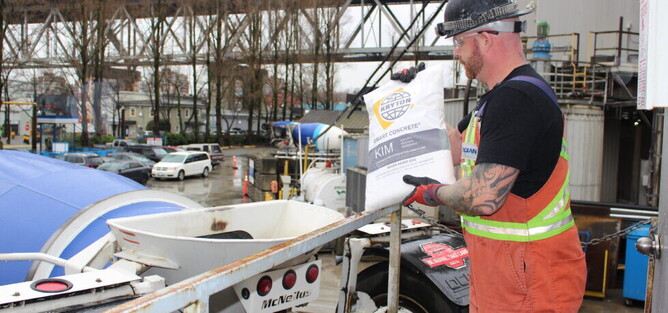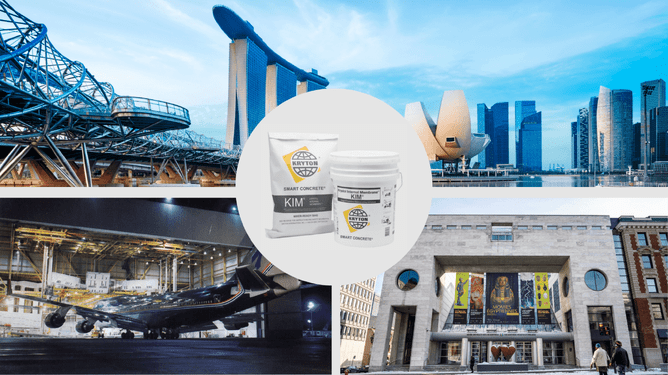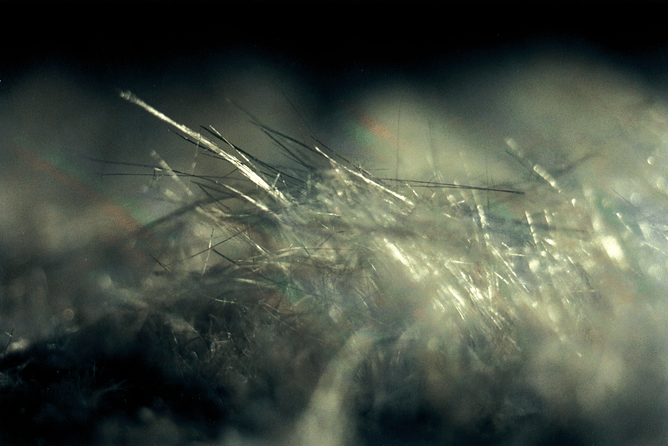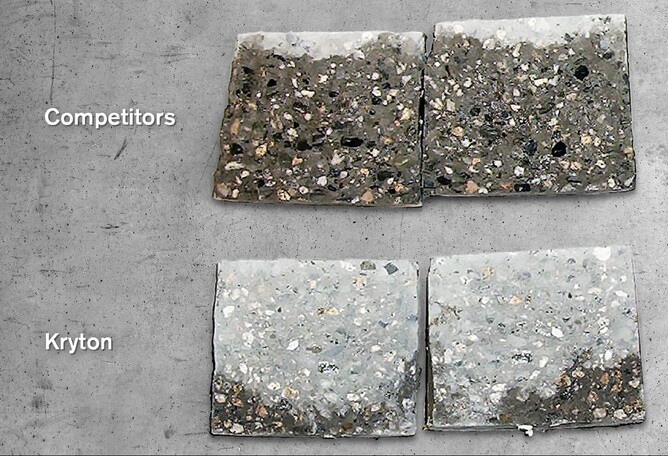When specifying waterproofing solutions for concrete construction projects, some may think that it comes down to two choices: external membranes or crystalline waterproofing admixtures. On the membrane side, you have what looks like a number of different styles to choose from (even if they are prone to failure) while crystalline admixtures are seen as all the same. So if you choose an admixture like that, it all just comes down to price then, right?
While that is a common thought about crystalline admixtures, it can lead to critical waterproofing failures if you’re not careful. After all, appearances can be deceiving! Crystalline waterproofing admixtures are not all the same, and your choice could mean the difference between the success and failure of your project. If you only look at price, you could end up with a poorly performing solution and an unhappy client or worse, the catastrophic failure of your structure.
To give you a better idea of why that is, we’ll give you three key reasons for why Kryton's Krystol Internal Membrane™ (KIM®) admixture stands out from the rest.
1. KIM Is the Most Time-Proven Crystalline Waterproofing Admixture Out There
It’s Been Around for 40 Years
Building professionals know that KIM is time-proven as it’s been around for 40 years, helping to protect high-risk projects around the world, such as the Montreal Museum of Fine Art’s expansion and the Marina Bay Sands resort. In fact, KIM was the original crystalline waterproofing admixture to begin with as it was invented 15 years before any other competitor. Its creation came about in the 1980s once Kryton found a way to transform Krystol® technology into an admixture. That innovation revolutionized concrete waterproofing, making it possible for concrete itself to react to water chemically to permanently block it out without the need for external membranes.
2. Its Unique Chemistry Also Makes KIM the Better Choice for High-Risk Waterproofing Projects
A time-proven and confident use of a waterproofing admixture isn’t the only thing to look out for. You also really need to consider how it works. Crystalline waterproofing isn’t the exact same across the board, so the quality of a project could depend on which kind you go for.
A good example of this is to just look at the chemistry behind crystalline waterproofing admixtures.
To See Why, Let’s Take a Closer Look at KIM
KIM works using unique technology that enables concrete to chemically react to water and unhydrated cement particles. That reaction creates needle-shaped crystals. These have just the right form to grow deep and resist water pressure as they fill up capillary pores and micro-cracks in the concrete. That blocks any water and waterborne contaminants from passing through.
You might hear that competing admixtures can do something similar. But that would be glossing over very key details.
Now, Let’s Look at Other Crystalline Waterproofing Admixtures
Many other admixtures work by enabling concrete to react to water and calcium hydroxide (also known as free lime). Already, this is a stark contrast to KIM. While KIM relies on an unlimited resource of both water and unhydrated cement particles, these other admixtures are working with a limited resource: free lime. After all, there’s only about 15% to 25% of free lime in hydrated Portland cement.
That limits the long-term performance of these admixtures. And if supplementary cementitious materials (SCMs) are part of a concrete mix, you’ll likely see reduced performance with them too considering they also need free lime to work effectively.
Even if you do have a mix without SCMs (which is highly unlikely nowadays due to the high demand for them and their ability to reduce cement usage), the crystals these admixtures produce are not the same as KIM’s. They generally come in a much rounder form. That leaves them unable to grow as deep or fill in spaces as much as KIM.
That difference in chemistry leaves KIM a more watertight solution for high-risk projects compared to competing crystalline waterproofing admixtures.
3. It May Sound Too Good to Be True, but KIM’s Quality Is Proven by Stellar Third-Party Testing
This is the number one thing you want to see from crystalline waterproofing admixtures: third-party testing. While testing from the manufacturers directly is better than no testing, it leaves potential room for biased, inaccurate reporting on performance.
Here at Kryton, we don’t have concerns about KIM’s performance. We know it works and that it works well. So KIM has undergone multiple third-party tests over its decades of use. The results of which have shown three significant benefits to using KIM over any old crystalline waterproofing admixture.
It Shows KIM Has the Highest Level of Permeability Reduction
In a number of tests, it’s been made clear that not all crystalline waterproofing admixtures will provide builders with the permeability reduction they’re looking for. In fact, two such tests done by experts at the British Board of Agrément (BBA) and the British Columbia Institute of Technology (BCIT) have proven the gap in quality can be quite significant.
For the BBA testing, it showed that KIM was three times more effective (calculated at around 300% more) than a competing product under hydrostatic water pressure. Meanwhile, BCIT noted that with just a 1% dosage via the DIN 1048-5 test method, KIM could provide a 28% decrease in permeability for concrete. The highest that competing admixtures in this test could do was up to 20%.
KIM Also Offers Quality Concrete Shrinkage and Crack Reduction
Permeability reduction is, of course, a key factor for anyone wanting a watertight structure. But it can also come with other benefits if you choose the right crystalline waterproofing admixture. These can include significant reductions in concrete drying shrinkage and cracking.
KIM more than proves this through a variety of independent testing.
Just comparing it to untreated mixes under the AS 1012.13 test method, like Boral Concrete & Quarries did, showed that KIM could reduce drying shrinkage by up to 25%.
Twining Laboratories of Southern California, Inc. did a similar form of comparison with control mixes. However, this time, they used the ASTM C494 standards. KIM was capable of decreasing shrinkage under these conditions as well. And it even provided concrete a 30% higher level of compressive strength on average compared to the control concrete.
To see what that might look like for a shotcrete mix, AMEC Earth & Environmental Ltd. developed their own control test. While KIM did not make an impact on the shotcrete’s compressive strength in either a positive or negative way, it did reduce drying shrinkage around 10% to 20%.
But what does all that mean compared to other crystalline waterproofing admixtures? To find out, BCIT compared KIM to two competing admixtures and control samples via ASTM C1579 and a modified version of this standard. The end result was clear. KIM resisted shrinkage effectively enough to produce a crack reduction ratio of 80% compared to the 10% and 15% of the competing admixtures under ASTM C1579. Meanwhile, under modified conditions where the temperature was higher and the humidity was lower, the ratio for KIM was 55% while the highest the competing admixtures could reach was 10%.
And KIM Is Proven to Prevent Steel Corrosion
On top of KIM’s high levels of permeability, shrinkage, and crack reduction, this crystalline waterproofing admixture also works to protect reinforcing steel.
This might seem like something all other crystalline waterproofing admixtures should have as a watertight concrete building needs safe, dry reinforcing steel to remain structurally sound. However, a 10-year study by the University of Hawai‘i College of Engineering starting in 2002 proved otherwise.
During this study, individual concrete test panels were treated with different solutions and then placed in a corrosive part of the Honolulu Harbor for a period of nine to 10 years. Once these panels were brought up, researchers could see that KIM had performed visibly better than the competing admixtures. KIM’s panel had low half-cell readings with no visible signs of corrosion while plenty of corrosion could be seen on the competing admixtures’ panels.
Keeping in mind these results, KIM’s lengthy history of success, and its unique chemistry, it’s clear to see why so many rely on this admixture for waterproofing. There’s an evident quality difference that price variations alone won’t be able to show. And it’s why when crystalline waterproofing admixtures are a key part of your waterproofing specification (and they should be), you need to look into them much more closely if you want to provide a quality solution.






